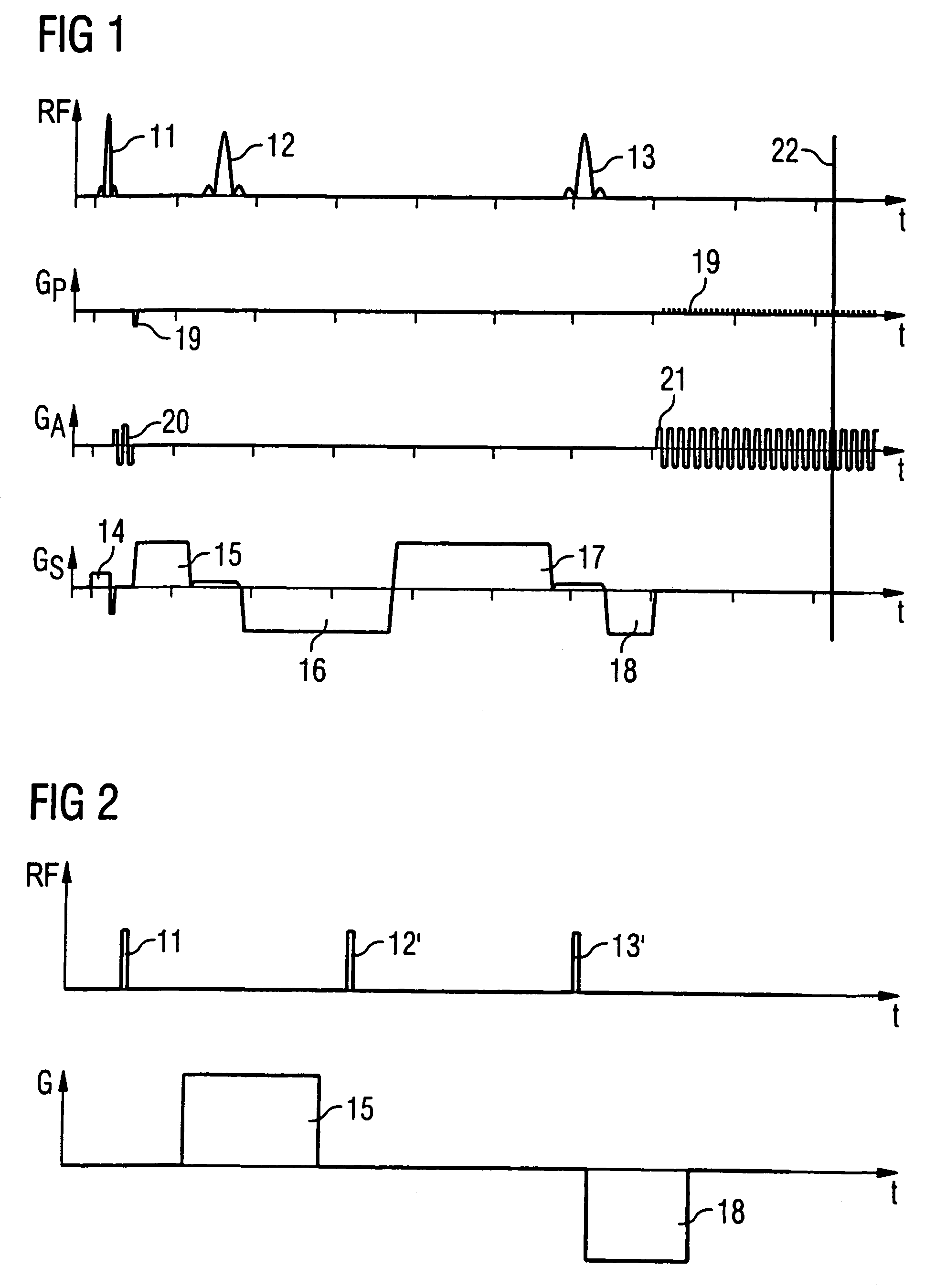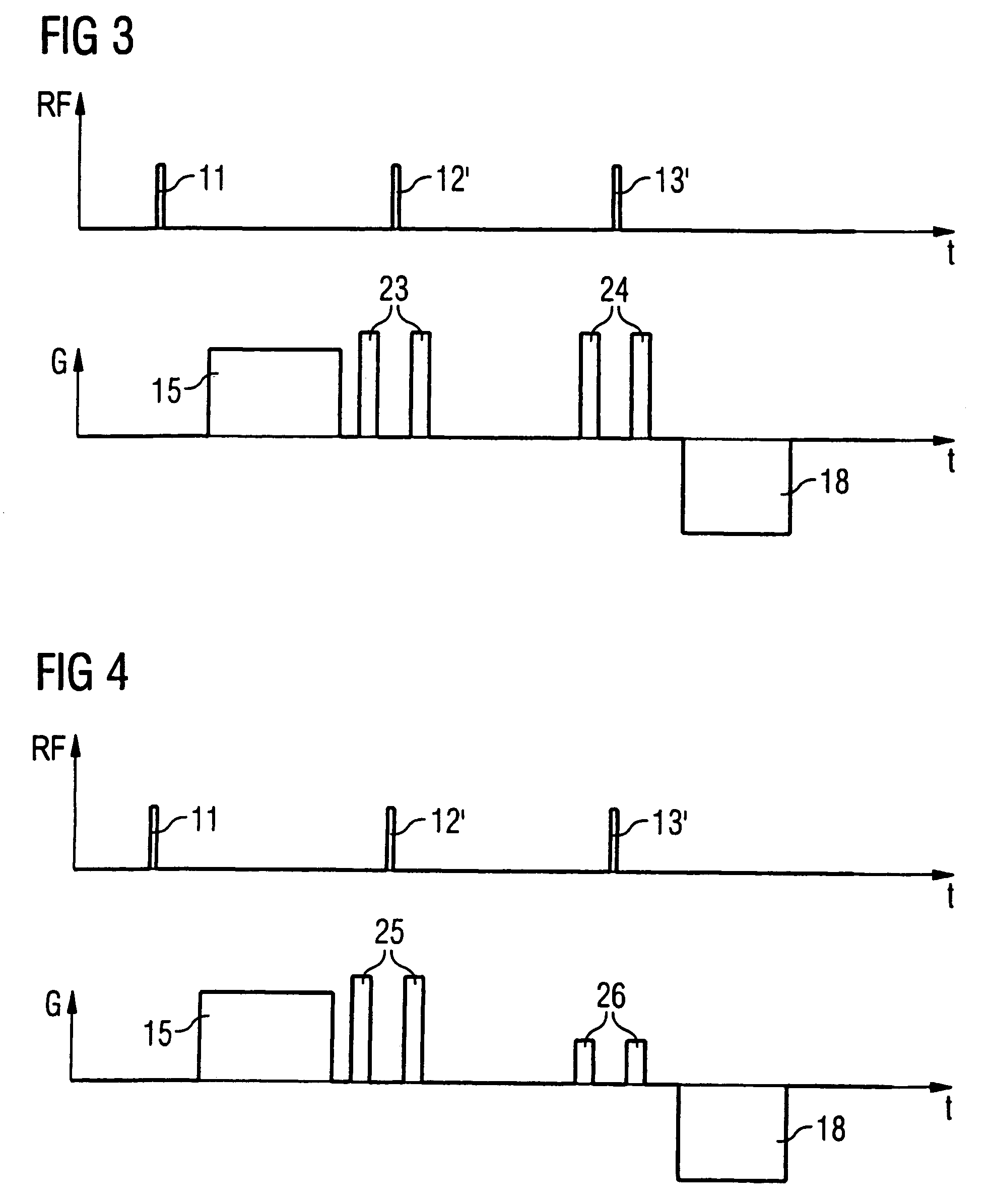Magnetic resonance system and method for determining a diffusion-weighted image
a magnetic resonance and image technology, applied in the field of method for determining the diffusion-weighted image of an examination subject, can solve the problem of not reliably preventing the appearance of artifacts in the image, and achieve the effect of reliably suppressing stripe artifacts
- Summary
- Abstract
- Description
- Claims
- Application Information
AI Technical Summary
Benefits of technology
Problems solved by technology
Method used
Image
Examples
Embodiment Construction
[0027]An example of a pulse sequence of a double spin echoplanar sequence without switching of diffusion gradients according to the prior art is shown in FIG. 1. In this double spin echo imaging sequence a 90° radio-frequency pulse 11 is radiated into the examination subject (not shown), followed by two 180° pulses 12 and 13. A magnetic field gradient GS for slice selection is switched (gradient 14) at the same time as the 90° pulse. The switching of the addition diffusion gradients 15-18 ensues in the slice direction after the slice-selection gradient in the slice direction.
[0028]Furthermore, a phase coding gradient Gp is activated in the phase coding direction. This gradient 19 corresponds to the phase coding gradient of an echoplanar imaging sequence. A readout gradient GA is likewise activated in the signal readout direction (gradients 20 and 21), whereby the signal readout ensues during the switching of the gradient 21. A central spin echo 22 (that is read out during the signal...
PUM
 Login to View More
Login to View More Abstract
Description
Claims
Application Information
 Login to View More
Login to View More - R&D
- Intellectual Property
- Life Sciences
- Materials
- Tech Scout
- Unparalleled Data Quality
- Higher Quality Content
- 60% Fewer Hallucinations
Browse by: Latest US Patents, China's latest patents, Technical Efficacy Thesaurus, Application Domain, Technology Topic, Popular Technical Reports.
© 2025 PatSnap. All rights reserved.Legal|Privacy policy|Modern Slavery Act Transparency Statement|Sitemap|About US| Contact US: help@patsnap.com



